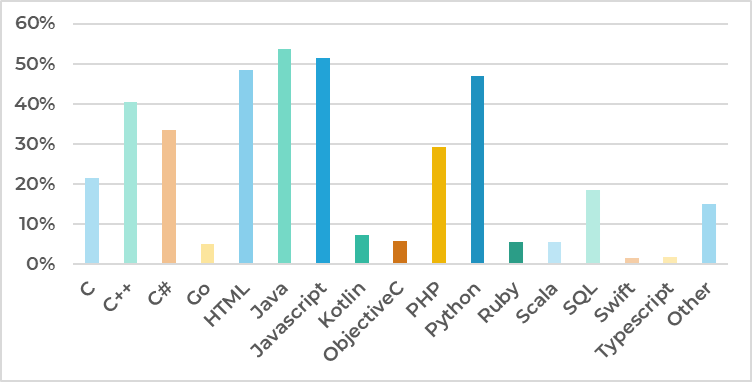CodeWeek 2021 is in full swing and its success shows a common interest from European education and civil society communities in making coding and digital literacy more accessible. Like CodeWeek, the Erasmus+ project ESSA (also known as the European Software Skills Alliance) wants to make sure young people (but also practitioners) have the right skillset to become successful software professionals.
Hard skills like coding and programming are fundamental to our digital societies. Code is found almost everywhere. It is used to develop the very software and computer programmes you use in your daily life and career. So, learning digital skills can allow you to easily seize the opportunities brought by technology.
Recently, ESSA published a report on “Europe’s Most Needed Software Roles and Skills” and, of course, professional hard skills make it to the top but did you know that soft skills are becoming a “must-have”?
Learning and developing software
If you really want to start a career in software, here are 3 most important things you should know:
- Programming languages are constantly evolving, and it is hard to predict which will last or die. You need to make sure you have a solid understanding of programming principles, so you can quickly and easily adapt to new languages.

The most in-demand programming languages are Java, Javascript, SQL, HTML, PHP, C++, C#, and Python.
- Software roles are not only about hard skills. Organisations are looking to hire people who can understand the business and the purpose of the solution they are developing. As an aspirant software professional, you should look at developing your soft skills like problem-solving, critical thinking, or teamwork. Learning programmes that offer real-life projects integrate traineeships and mobility windows will help you achieve that.

- T-shaped professionals and Pi-shaped professionals are the preferred model for future software professionals, but there is an obvious preference for Pi-shaped. The difference is that T-shaped professionals are specialised in one area and can work and collaborate with different disciplines. However, Pi-shaped professionals are experts in at least two different domains (for example software and marketing), which makes them an asset to any organisation.
Teaching future software professionals
Both the CodeWeek and ESSA initiatives put an emphasis on inclusiveness and accessibility. Indeed, these aspects should be prevalent when designing and delivering learning programmes.
- CodeWeek is about investing in young people from an early stage of life. Ideally, educating software professionals starts in primary school with teaching programming logic, problem-solving, teamwork and all these skills crucial for life.
- Lifelong learning is also an essential aspect of personal and professional development. Overall, we need shorter and modular training programmes to allow for an efficient upskilling and reskilling of busy professionals. Shorter training cycles would also be easier to undertake more regularly to keep up with the newest technologies and trends (think of micro-lessons and Microcredentials).
- Ideally, curricula design should be guided by external frameworks (like the e-CF for IT professionals) to make it recognisable at local and European levels and stimulate international mobility.
- ESSA’s report showed us that learning hard skills is of course important but that soft skills should not be overlooked. Thus, learning programmes should include critical soft skills training more systematically. Soft skills are developed in real-life situations, as they cannot be taught from books – people must practice them.
- This last point is not news. We need more collaboration between learning providers and organisations so we can present students with real-life experience, authentic tasks that will help them shape their future careers, e.g., apprenticeships and work-based learning.
About ESSA’s “Europe’s Most Needed Software Roles and Skills” report
Report developed by the European Software Skills Alliance (ESSA), September 2021. This report presents the current and future needs for software skills and professionals in Europe. The conclusions are drawn based on the study of job vacancies, available research on software skills, education and training programmes, labour market reports, and databases. We also collected experts’ input about their expectations for the future of software roles, skills, and their provision.
Click here to read the full report.
Photo by Sigmund on Unsplash
